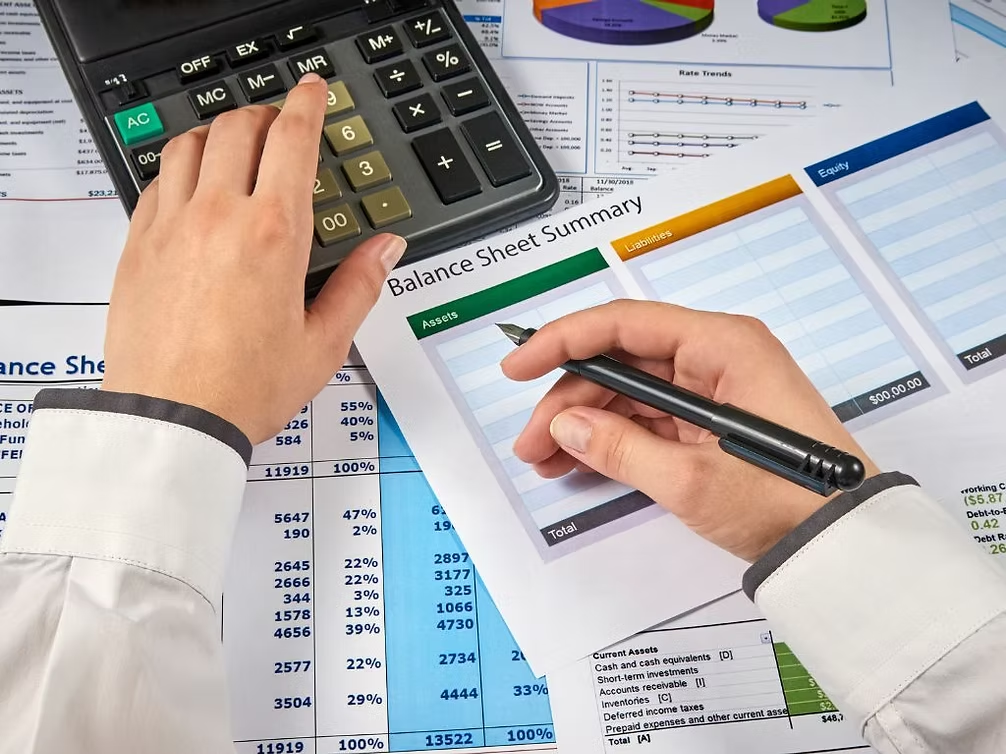
The Magpie Effect: How Businesses Get Distracted by Shiny Objects
May 15, 2025
Why Coaching is the Key to Unlocking Your Full Potential
May 15, 2025Why Balance Sheets Are the Financial Backbone of Your Business
The Importance of Financial Literacy
If you’re serious about running a successful business, financial literacy is non-negotiable. It’s not enough to have a good idea or be passionate about what you do—you need to understand your numbers. And at the heart of that financial understanding lies the balance sheet. It’s often overlooked or misunderstood, but the balance sheet is one of the most critical financial documents in your business. In fact, it’s your financial backbone. Whether you’re a startup or a seasoned SME, if you don’t know how to read, interpret, and use your balance sheet, you’re essentially flying blind. So, let’s break it down and talk about why it matters so much.
What is a Balance Sheet?
A balance sheet is a snapshot of your business’s financial health at a given point in time. It shows what you own (your assets), what you owe (your liabilities), and what’s left over for the owners (equity).
In simple terms, it’s a breakdown of your business’s financial position—what’s coming in, what’s going out, and what’s keeping the lights on. Unlike the profit and loss statement, which looks at performance over a period, the balance sheet gives you a real-time picture of where your business stands financially.

Breaking Down the Balance Sheet: Key Components
A balance sheet is typically divided into three main sections:
1. Assets: This includes everything your business owns that has value—cash, inventory, equipment, property, and receivables. Assets are divided into two categories: current (can be converted into cash within a year) and non-current (long-term investments).
2. Liabilities: These are the debts your business owes—loans, unpaid bills, taxes owed, and other obligations. Like assets, liabilities are divided into current (due within a year) and non-current (due after a year).
3. Equity: Also known as shareholders' equity or owner’s equity, this is the portion of the business that belongs to you or your shareholders after all liabilities are settled. It’s the difference between your assets and liabilities.
In essence, the balance sheet is all about balance: Assets = Liabilities + Equity. If those numbers don’t match up, something’s wrong.
Why Balance Sheets Are Important: Core Benefits
So, why should you care about your balance sheet?

Here are the key reasons:
1. Financial Health Check: A balance sheet gives you a clear, at-a-glance view of your business’s financial health. Are you in a strong position, or are you teetering on the edge? You’ll know instantly.
2. Decision-Making: Whether you’re thinking of expanding, hiring, or cutting costs, your balance sheet will guide you. It helps you understand whether you can afford to take on new debt or invest in growth.
3. Attracting Investment: Potential investors and lenders will want to see your balance sheet. It shows them how well your business is managing its finances and whether you’re a safe bet.
4. Risk Management: By looking at your liabilities and assets, you can better manage financial risk. Are you too heavily leveraged? Do you have enough liquidity to survive a downturn? The balance sheet will tell you.
5. Tracking Progress: Comparing your balance sheets over time shows how your business is growing or shrinking. It helps you track progress and make adjustments when necessary.
Common Mistakes Businesses Make with Balance Sheets

Despite its importance, many businesses make mistakes with their balance sheets. Here are some of the most common ones:
1. Not Updating Regularly: A balance sheet is only useful if it’s up to date. Too often, businesses neglect to keep it current, which means they’re working off outdated information.
2. Misclassifying Assets or Liabilities: Confusing short-term and long-term assets and liabilities can distort your financial picture. Make sure you understand the difference between current and non-current.
3.Ignoring the Balance Sheet: Some business owners are so focused on profits that they forget the balance sheet even exists. This is a huge mistake, as it provides context to your profits and losses.
4. Overlooking Debt: Failing to properly account for loans and other liabilities can lead to a false sense of financial security. Always be honest about what you owe.
How to Use Your Balance Sheet Effectively

Now that we know why the balance sheet is important, how can you use it effectively in your business?
1. Monitor Liquidity: Regularly check your current assets against your current liabilities. This helps ensure you have enough liquidity to cover short-term obligations.
2. Assess Solvency: Compare your total liabilities to your equity to understand how much debt your business is carrying. High debt levels can be a red flag.
3. Set Benchmarks: Use your balance sheet to set financial benchmarks. How much cash should you have on hand? How quickly should you be paying off debt? Regularly review these metrics to stay on track.
4. Plan for Growth: As your business grows, your balance sheet will change. Use it to help plan for expansion, ensuring that you’re not taking on more risk than you can handle.
5. Engage a Professional: If you’re unsure about how to read or interpret your balance sheet, get a professional accountant involved. It’s always better to have an expert’s eye on your finances.
Conclusion: The Balance Sheet as a Strategic Tool
At the end of the day, the balance sheet isn’t just a financial document—it’s a strategic tool. It tells you exactly where your business stands and guides you in making smarter decisions for the future. When used effectively, it becomes the backbone of your business’s financial success.
So, if you’ve been ignoring your balance sheet or treating it as an afterthought, it’s time to change that. Understanding and using your balance sheet is one of the most powerful things you can do to ensure your business is on solid financial ground. Ready to Strengthen Your Financial Backbone?
If you want to make smarter financial decisions and use your balance sheet as the strategic tool it’s meant to be, let’s have a conversation. Your business’s financial health depends on it.





